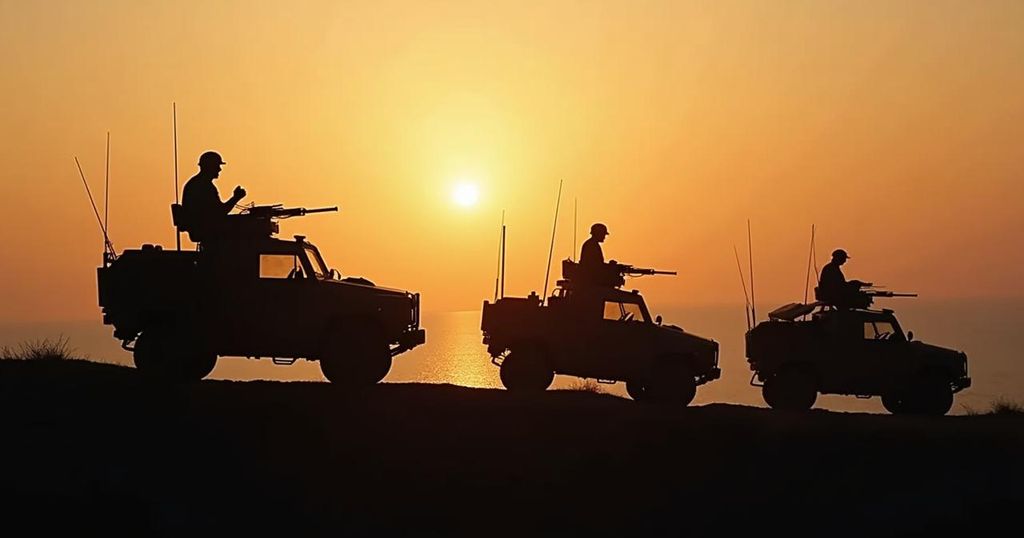Israeli ground forces launched a limited offensive against Hezbollah in southern Lebanon, escalating tensions following the death of their leader, Hassan Nasrallah. The operation includes focused raids, with increased artillery and air strikes intensifying the conflict. Iran’s response remains cautious, despite being pressed by events, as Israel threatens broader regional actions.
The situation in southern Lebanon has escalated significantly as Israeli ground forces commenced a limited offensive against Hezbollah militants early Tuesday. This represents a new dimension in a prolonged conflict with Iranian-backed adversaries, particularly after a series of airstrikes that resulted in the death of Hezbollah’s longstanding leader, Hassan Nasrallah. The Israeli military described the operation as consisting of ‘limited, localized and targeted ground raids’ aimed at Hezbollah positions, particularly those presenting a danger to Israeli communities in the north. Despite the ground incursions, there have been no direct encounters reported thus far. However, the Israeli artillery has bombarded various locations in southern Lebanon while air strikes echoed throughout Beirut, causing substantial damage and prompting fear among local civilians, many of whom have already fled the region. Israel has been increasingly aggressive against Hezbollah, previously executing a series of airstrikes that compromised the group’s operational structure. The political backdrop involves Iran’s reaction to the death of Nasrallah, raising concerns among analysts regarding potential retaliation. Iran’s Supreme Leader Ali Khamenei expressed that Lebanon would make Israel ‘regret its actions’, but there was a noticeable absence of decisive action from Tehran, suggesting a complex geopolitical calculus. The tension is exacerbated by the fact that Hezbollah, despite having suffered major losses, continues to engage in retaliatory attacks against Israel, demonstrating its capacity and resolve. Israeli leadership has openly threatened Tehran, highlighting its willingness to intensify military actions across the region. As Israel’s military gains against Hezbollah mount, the risks associated with a full-scale invasion loom large, particularly given Hezbollah’s entrenched presence in civilian areas and its significant arsenal of weapons. The implications of these developments could lead to widespread devastation and possibly ignite a larger regional confrontation if diplomacy fails.
This escalation follows a turbulent period marked by increasing hostilities between Israel and Hezbollah, which have deep historical roots tracing back to the 2006 war. Recent weeks have displayed an uptick in military actions led by Israel, primarily targeting Hezbollah, including more than one airstrike that resulted in significant leadership losses for the militant group. Hezbollah remains a critical component for Iran’s foreign policy in the region, providing them influence and a means to contest Israeli power. In the context of the ongoing war against militias backed by Iran, the current operations signify a strategic effort by Israel to dismantle Hezbollah’s capabilities, viewing the organization as a primary threat to its national security. The geopolitical stakes are exacerbated by Iran’s complex position, balancing domestic challenges with the need to maintain its influence in the region.
In summary, Israel’s commencement of ground operations in southern Lebanon marks a pivotal moment in the ongoing conflict with Hezbollah, heightening military tensions and posing severe risks for further escalation in the region. While Israel aims to establish military superiority, the potential consequences for Lebanon and the broader Middle East remain profound, with fears of significant civilian ramifications and increased instability as both sides prepare for an intense confrontation. The situation necessitates careful observation as international parties call for restraint amidst the unfolding violence.
Original Source: apnews.com







